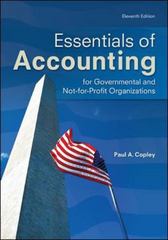Question
Some publicly traded firms do stock splits. Many stock holders as well as some analysts believe that a stock split would definitely benefit current shareholders
Some publicly traded firms do stock splits. Many stock holders as well as some analysts believe that a stock split would definitely benefit current shareholders by raising the firms stock price. For example, Apple, Inc. (AAPL) announced a 4 to 1 stock split in August 2020, following its 7-for-1 stock split in 2013. You read in chapter 14 that, in theory, a 4:1 stock split would increase the number of outstanding shares four fold and cut down the post-split stock price to 1/4 of pre-split price, thus leaving the wealth of Apple's shareholders unchanged. Unlike Apple, many other successful firms such as Amazon, Google, and Berkshire Hathaway with per share stock prices much higher than Apple's have not done stock splits. Also, many brokerage firms have recently cut down the stock trading commission to zero and allowed investors to buy fractional shares of firms (i.e., less than one share). So you are puzzled why some shareholders, traders, and analysts adamantly believe that stock splits benefit shareholders. Please explain whether or not stock splits in general would benefit a firm's current shareholders with at least a 5-year investment (holding) horizon. You would want to use your understanding of chapter 14 stock split material, especially the signaling aspects of stock splits, optimal stock price range theory, and past empirical evidence in your explanation.
Step by Step Solution
There are 3 Steps involved in it
Step: 1

Get Instant Access to Expert-Tailored Solutions
See step-by-step solutions with expert insights and AI powered tools for academic success
Step: 2

Step: 3

Ace Your Homework with AI
Get the answers you need in no time with our AI-driven, step-by-step assistance
Get Started


